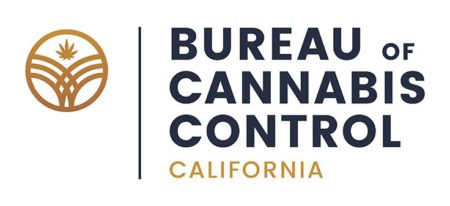The California Bureau of Cannabis Control (BCC) released the new set of emergency cannabis regulations which will be in effect for 180 days from June 6, 2018.
Among other things, the new cannabis regulations:
- Permit a commercial cannabis business to apply for one permit for both medical and adult use marijuana rather than two separate permits;
- Permit a drive-through for those cannabis applicants that disclosed the use in the local cannabis license application and that received, or applied for, a cannabis license or cannabis permit from the local jurisdiction prior to June 1, 2018;
- Remove the requirements to keep medicinal and adult-use cannabis goods separate in the transport vehicle;
- Remove the requirement that retailers not display cannabis goods in a place visible from outside the licensed premises;
- Clarify that the State cannabis licensing fee is not due until the license is approved.
There is also significant “clarification” and regulation regarding cannabis delivery drivers. Among other changes, the emergency cannabis regulations:
- Permit a marijuana delivery employee to carry up to $10,000 in cannabis goods and complete multiple deliveries, but the driver may not leave the cannabis retailer premises without at least one marijuana delivery order that has been received and processed;
- Require the driver to have a marijuana delivery inventory ledger that includes the type of cannabis good, the brand, the retail value, the cannabis track and trace identifier, and the weight, volume, or other measure of the cannabis good. After each customer delivery, the cannabis delivery ledger must be updated;
- Require the marijuana delivery driver to maintain a log that includes all stops from the time the driver leaves the cannabis retail premises to the time the driver returns to the premises. If a cannabis delivery driver does not have any delivery requests to be performed for a 30-minute period, then the driver must return to the cannabis retail premises.
For more information about the BCC’s new set of emergency cannabis regulations, see the Bureau of Cannabis Control Summary of Changes to the BCC Emergency Regulations.
Although not highlighted by the BCC, the new regulations also include a new cannabis application requirement regarding “cannabis waste procedures” requiring identification of the local agency or waste hauler to be utilized and/or the procedure for composting on-site. Also, the Premises Diagram requirement of Title 16 California Code of Regulations § 5006 has been amended to require a more robust diagram which includes designation of cannabis storage, batch sampling, loading or unloading of shipments, cannabis packaging and labeling, customer sales, loading for cannabis deliveries, extraction, cultivation, and processing, where applicable. See the Bureau of Cannabis Control Approval of BCC Emergency Regulations Text.
Ironically, as the BCC continues to modify the regulation of commercial cannabis through emergency measures, the BCC simultaneously released a Transition Period Fact Sheet today emphasizing the July 1, 2018, deadline for sales of untested cannabis and packaging and label requirements for licensed cannabis distributors, retailers, manufacturers and cultivators.
Beginning July 1, 2018, a licensee may only sell cannabis goods that have been tested and passed all cannabis testing requirements in effect at the time of testing.
The BCC is mandating that licensed cannabis retailers in possession of untested cannabis products destroy them and not sell or test them.
Cannabis distributors in possession of untested cannabis products manufactured or harvested prior to January 1, 2018, must destroy the products if the products are owned by the distributor. If the products are owned by the cannabis manufacturer or cultivator, the products may be returned to the licensee who owns the cannabis goods. If a cultivator or cannabis manufacturer chooses to sell the returned goods, they must be sent to a cannabis distributor for testing and must meet all of the cannabis testing requirements in effect at the time of testing before transported to a retailer for sale.
In addition, effective July 1, 2018, all marijuana packaging and labeling must be performed prior to delivery to a cannabis retailer. Retailers cannot accept marijuana products that are not properly packaged and labeled and must destroy unpackaged and improperly labeled products, with a limited exception for medical marijuana sales. A retailer may not package or label cannabis goods, even if the goods were in inventory before July 1, 2018.
Beginning July 1, 2018, edible cannabis goods may not exceed 10 milligrams of THC per serving and may not exceed 100 milligrams of THC per package.
Beginning July 1, 2018, non-edible cannabis products must meet package THC restrictions. Non-edible cannabis products may not contain more than 1,000 milligrams of THC per package if intended for sale only in the adult-use marijuana market. Non-edible cannabis products shall not contain more than 2,000 milligrams of THC per package if intended for sale only in the medicinal marijuana market.
Beginning July 1, 2018, a retailer may only sell cannabis products that meet the requirements set by the California Department of Public Health for ingredients or appearance.
For more information, see the Bureau of Cannabis Control Transition Period Fact Sheet. [Update: subsequent to this article, the Bureau of Cannabis Control issued a June 28, 2018, BCC Revised Transition Period Fact Sheet.]
The emergency cannabis regulations are intended to provide California Cannabis License applicants (distributors, retailers, microbusinesses, temporary cannabis events, testing laboratories, etc.) with information and guidance for submitting a cannabis license application and for complying with the Medicinal and Adult-Use Cannabis Regulation and Safety Act (MAUCRSA), found in California Business & Professions Code, section 26000 et seq. The emergency rule making is pursuant to California Business & Professions Code section 26013(b)(3).
Read more about cannabis law at California Cannabis Law, and find out about proposed changes to California cannabis law with the California Cannabis Law Legislative Update.
[Update December 2018 – The Bureau of Cannabis Control has provided the text of the permanent final BCC Cannabis Regulations with the new language underlined and the language to be deleted stricken through. The existing California cannabis emergency regulations discussed in this article remain in effect until the California Office of Administrative Law (OAL) has completed its review. For more information about the final permanent California cannabis regulations, see BCC to Permit California Cannabis Delivery Statewide.]
Contact us to learn more about California state or local cannabis regulations, cannabis regulatory compliance, and cannabis litigation.


